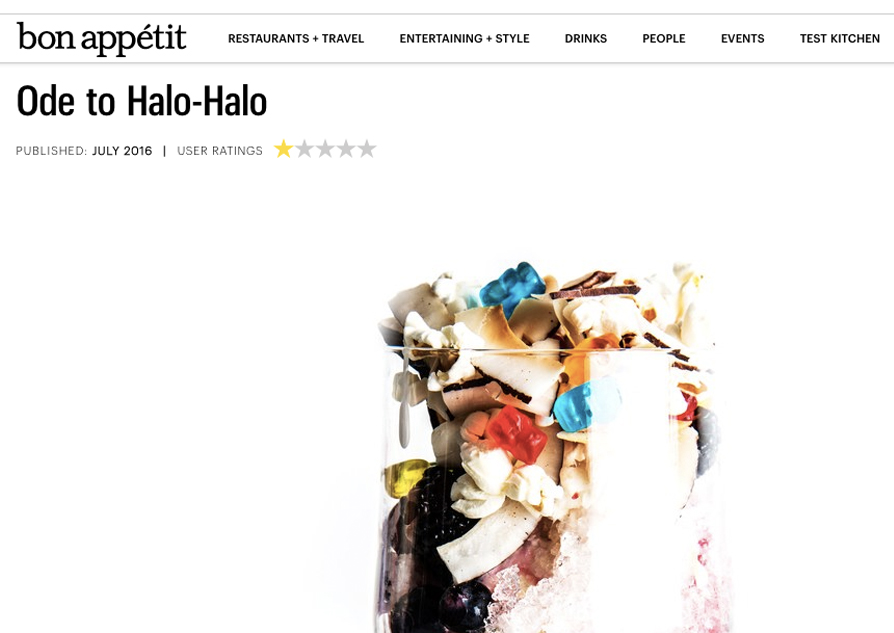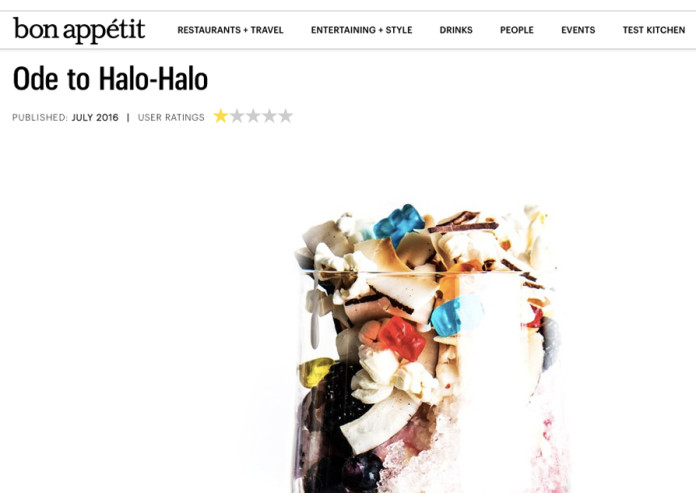Would you dare to try halo-halo with ingredients such as gummy bears, popcorn and blueberries?
Bon Appetit, a popular food magazine, unveiled its take on the Philippines’ most celebrated chilled dessert. But it’s not the type of halo-halo someone would expect – it missed out its key ingredients in favour of American snacks.
Read also: Canadian chef’s upscale version of Hainan chicken rice outrages Asians
“Our reimagined version plays off the original with store-bought toppings like coconut flakes and gummies. Macerating the fruit makes it extra juicy and saucy, but you could just throw in any unadulterated berry,” the description read.
Here are the ingredients of the mag’s “Ode to Halo-Halo”:
– 2 very ripe bananas, sliced ¼-inch thick
– 2 tablespoons light brown sugar
– ¼ teaspoon vanilla extract
– Kosher salt
– 6 ounces fresh blueberries (about 1 cup)
– 6 ounces fresh blackberries (about 1½ cups), cut in half if large
– 2 tablespoons fresh lime juice
– 1 tablespoon granulated sugar
– ¾ cup unsweetened coconut milk
– 2 tablespoons sweetened condensed milk
– 4 cups shaved ice
– ½ pint vanilla or coconut ice cream
– Toasted unsweetened coconut flakes, gummy bears, and/or popcorn (for serving)
Read also: Food fight as Jamie Oliver’s paella inflames Spain
Filipino netizens singled out the magazine for its desecrated halo-halo creation. According to them, adding “irrelevant” bits to the Filipino summer refresher would miss out its authentic taste and unique culture.
“Bad takes on Filipino food hurt my soul. Like when halo-halo becomes movie theatre floor garbage ice dessert,” one Twitter user lamented.
The food magazine previously crowned Bad Saint, a Filipino restaurant in Washington, DC, as the second-best restaurant in its overly envied list.
This is the second time Bon Appetit was keenly scrutinised for “whitewashing” Asian delicacies. Recently, it released a short clip about pho, a Vietnamese noodle soup, which depicted a white chef demonstrating his viewers how to “properly” ingest pho.
Many viewers decried it as “cultural appropriation,'” for which Bon Appetit apologised.
Read also: Chicken rice with edible flowers? Culinary ‘innovations’ that leave foodies in tears






